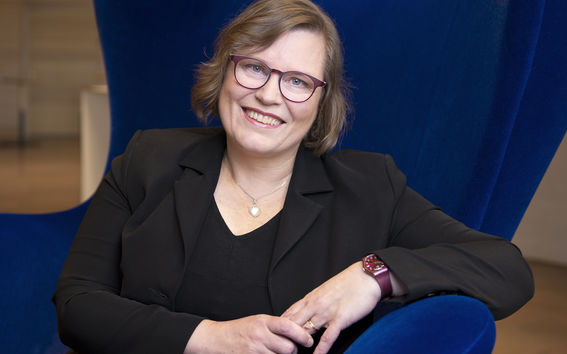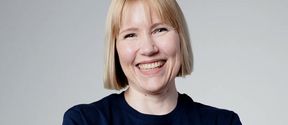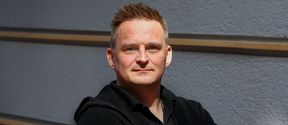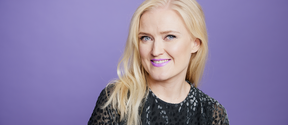Kirsi Niinimäki celebrates the textile revolution and chooses 10 as her number
In this series, we interview Aaltonians to find out what’s behind our community’s impact. We ask these Aaltonians what makes them tick and which number they think best captures Aalto’s impact. Professor Kirsi Niinimäki is excited that the textile industry is changing at a furious pace and is lobbying to ensure that the change is guided by the best possible research.
"I started my career as a textile designer at a time when there was still a vibrant textile industry in Finland. I was lucky to see how the machines, processes, designs and markets work in practice. I also had a long career as a teacher before I became a researcher at Aalto University. Solid practical experience and pedagogical skills have proven extremely useful in my work.
I study textiles and fashion in the context of sustainable development. My group and I look at the whole process, starting from design through production to consumption. The stages are all linked and are all changing as we move from a linear production model to a circular economy.
We’re involved in several large projects promoting the circular economy of textiles, such as FINIX, funded by the Academy of Finland, the EU's New Cotton and TERIX, led by Adidas. We work closely with various partners to try to get the latest research results into use on a large scale as quickly as possible.
Technical innovations, such as new recycled fibres, play a big role in changing the industry, but other changes are also needed. For example, in my group we study the role of the consumer and the social dimension of the industry. The imbalance in the current system is huge: the clothes we consume are produced too cheaply using the labour of people in developing countries. It’s important to avoid making the same mistakes in the circular economy – that's why we think a lot about equality and justice.
Currently, a textile directive is being prepared in the EU which stipulates that products must be durable, repairable and recyclable. This would revolutionize the whole system, starting with design. We’re diligently lobbying decision-makers to ensure that the latest information is included in their decisions. The change from fast fashion to a circular textile economy isn’t easy. For example, we still lack the infrastructure to collect, sort and recycle textile waste.
I’m very excited about the speed and volume of the progress that’s happening. It seems that everyone wants to switch to the new model, and legislation to enforce it is following public opinion. The attitude in the industry is divided: some are enthusiastic, while others are afraid of change. But everyone understands that upheaval is inevitable.
I would describe the effectiveness of our work with an old-fashioned school grade, a full ten. We are involved in a huge number of forums, and research is going strong. Contact requests come in all the time – there’s huge demand for our know-how."
Kirsi Niinimäki, Associate professor in Design

Show other posts from this blog

Sonja from Kapacity.io: "Having true desire to make a meaningful impact through your business idea is crucial"
To succeed, you need to be persistent and critical of your own thinking, and keep on trying and searching until you come up with something not a lot of people have thought of before.
Johanna from Relex: "Find a problem that is relevant and above all, meaningful to you"
RELEX Solutions helps retailers optimize their supply chain by enhancing adaptability and efficiency across the consumer goods value chain.
Peter from Vensum: "It’s crucial to have a clear vision of the impact you aim to make. "
Vensum’s story was ignited by the urgent need to address some of the main problems our energy system will face in the near future.